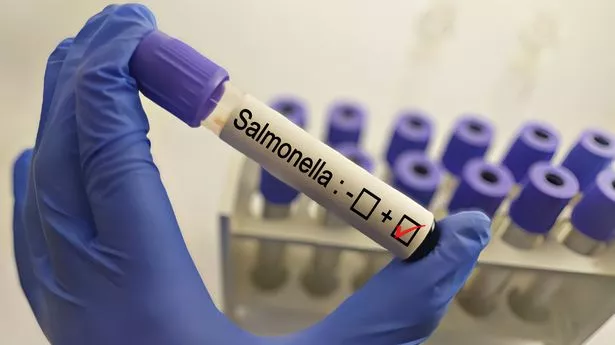Salmonella bacteria could be used to treat cancer, scientists say.
British researchers are looking at whether the bacteria could be used to slow tumour cell growth in bowel cancer. A new generation of “bacterial therapies” could be on the horizon as Cancer Research UK-funded trials on mice appear to show a way salmonella could be genetically modified to work.
Using bacteria to kill cancer has been of interest to scientists since the late 19th century because some are known to suppress tumour growth. The problem until now has been that they also suppress a part of the immune system needed to fight tumours.
Dr Catherine Elliott, CRUK research director at Cancer Research UK, said: "Bacterial therapies have not become mainstream despite massive strides in immunotherapies which use our own bodies' immune system to attack cancer. But the power of bacteria has long been acknowledged as likely to hold significant potential to tackle disease. This exciting development could lead to more effective treatments for patients with colorectal and other cancers in future, providing hope for patients."
Bowel cancer is the second most common cause of cancer death in the UK after lung cancer.
Researchers at Birmingham and Glasgow universities have managed to identify the mechanism that causes the immune system to be suppressed by salmonella. A genetically-engineered safe form of salmonella was given to mice with colorectal cancer to look at how it subdues T cells, key immune cells that help protect the body from infection and cancer.
The team found that salmonella depleted an amino acid, asparagine, which suppresses tumour growth, but also suppresses T cells. More research is now planned to see if salmonella can be further engineered to work alongside the immune system so T cells can attack cancer cells alongside the bacteria.
Lead researcher Dr Kendle Maslowski, of Glasgow University, said: "We know attenuated salmonella and other bacteria have the power to tackle cancer, however until now it was not known why it was not proving as effective as it should be. Our research has discovered that it is an amino acid called asparagine that the bacteria attacks which is essential for T cells to be activated. We believe this knowledge could enable bacteria to be engineered not to attack asparagine, allowing the T cells to act against the tumour cells, leading to new effective treatments for cancer."
Co-author Dr Alastair Copland, of Birmingham University, said: "Bacterial therapies are an exciting way to treat cancer by essentially starving tumours of vital nutrients. One longstanding mystery has been why T cells, which are key to fighting cancer, don't function optimally during this treatment. Now we've identified the protein responsible for this, and pinpointed an exciting genetic target that could help us unleash the full potential of this therapy. It's particularly rewarding to turn a disease-causing bug like salmonella into one that combats cancer."
The findings are published in the journal EMBO Molecular Medicine.
